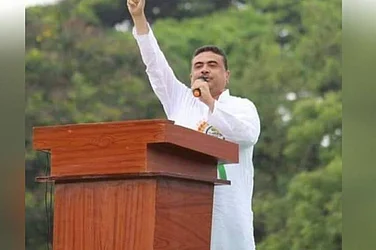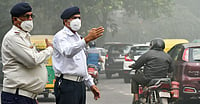“Bulldozer Drives” and demolitions are being increasingly viewed as an unconstitutional yet accepted consequence of any communal clash. The recent demolition of over 250 shanties in Nuh, Haryana, in the wake of the recent communal clashes can be viewed as an evidence to affirm the same. While these clashes paint both sides as ‘victims’, they further perpetrate violence on a disadvantaged section, which already faces discrimination. Before spreading to Haryana, these demolitions were earlier carried out in Madhya Pradesh, Uttar Pradesh and Delhi in 2022.
It is also important to note that the residents of such ‘disputed’ lands were not issued any prior notice.
Here’s a listicle on a few recorded demolitions in the recent past:
Nuh, Haryana: Over 250 shanties in Tauru town on Mohammadpur Road―a Muslim-majority area in Haryana―were bulldozed in August 2023 on the pretext of its alleged illegitimacy. Multiple news reports suggested that the shanties belonged to illegal immigrants from Bangladesh, and were used as a hub to mobilise the rioters involved in inciting the ensuing clashes at Nuh, as most of those involved in the attacks on the Shobha Yatra were from this settlement. Narender Birjaniya, OSD to ADGP (Law) Mamta Singh, said, “We have carried out the demolitions and principally, these structures were illegal. You cannot have an illegal structure and use it to hamper law and order.”
Khargone, Madhya Pradesh: After arresting 84 people connected to the communal clashes that broke out in Khargone district in early April 2022, the local administration razed properties and houses of those suspected to be involved in the violence―in less than 24 hours. As reported by a national newspaper, a total of 45 properties were demolished, while the city was under curfew. “Not all, but some of the accused involved in the communal riots own these properties, they were encroaching on public land and action has been taken based on land revenue records,” said the Divisional Commissioner of Indore. “The main idea behind the move is to instil fear of financial losses among the accused,” he added. An agitated Chief Minister, Shivraj Singh Chouhan, commented that action will not be limited to arrests, but the damages would also be recovered from the rioters.
Jahangirpuri, Delhi: Just days after the demolition drive in Khargone on Aprill 11, bulldozer justice was extended to the alleged protestors in Jahangirpuri, following communal violence in the area during a Hanuman Jayanti procession in the preceding week. However, the Supreme Court intervened in time and put a halt to the demolitions. The Municipal Corporation had demolished illegal extensions of more than 50 shops, including those on the mosque’s premises, decisively ignoring the illegal extensions near the temple, said those subjected to an arbitrary and unfair move. These demolitions were carried out despite the court’s order to maintain status quo.
Prayagraj, Uttar Pradesh: This particular demolition drive was cited as a ‘collective punishment’ targeted at Muslims, when the residence of an activist of the Welfare Party of India and businessman, Javed Mohammed, was razed to ground after he was alleged to be the conspirator responsible for the violence that erupted in June 2022. Javed was a participant in the protest against former BJP spokesperson Nupur Sharma’s derogatory remarks on Prophet Muhammad. The authorities attributed the demolition of the house to the fact that it was built without requisite approval. Although this has been the customary norm, the only exception in this case was that the family was served prior notice. However, the notice was issued only a day before demolition and was backdated to May 10, 2022, the family asserts.
While the act was questioned and contested by many, retired Allahabad High Court Chief Justice Govind Mathur questioned the rule of law, as the demolition took place on a Sunday when the residents were in custody. Similar demolitions followed in Kanpur―launched by the Kanpur Development Authority―on the same pretext of identical protests against the same remark.
Himmatnagar, Gujarat: A demolition drive was carried out by the municipal body in the Chhapariya locality of Sabarkantha district to tear down alleged illegal settlements after communal violence broke out on Ram Navami, on April 10, 2023. The demolition, executed on April 26, 2023, was acceded by the Police as an ‘anti-encroachment’ drive. “On Tuesday, police bandobast was arranged after the civic body informed us of the anti-encroachment drive. It has nothing to do with the riot accused.” said the local superintendent of police (SP) Vishal Vaghela. Amongst the demolished structures was a two-storey building that belonged to Ashrafnagar Jamaat, a local socio-religious organisation in Himmatnagar.
Khambat, Gujarat: A demolition drive was also carried out in Khambat town of Gujarat, on April 15, after a similar clash broke out during a Ram Navami procession. Owing to the customary practice of demolition, the district administration of the Shakarpur area, demolished seven to eight kiosks as a part of an “anti-encroachment drive”. The structures again belonged to those involved in the earlier clashes.
A common trend behind these “ethnic cleansing” drives includes targeting Muslim-majority areas; lack of any prior notice; and, all these demolition drives happened in the aftermath of communal clashes. The question, however, remains: why are these injudicious acts being ‘normalised’?








.png?auto=format%2Ccompress&fit=max&format=webp&w=768&dpr=1.0)




.png?auto=format%2Ccompress&fit=max&format=webp&w=376&dpr=2.0)











